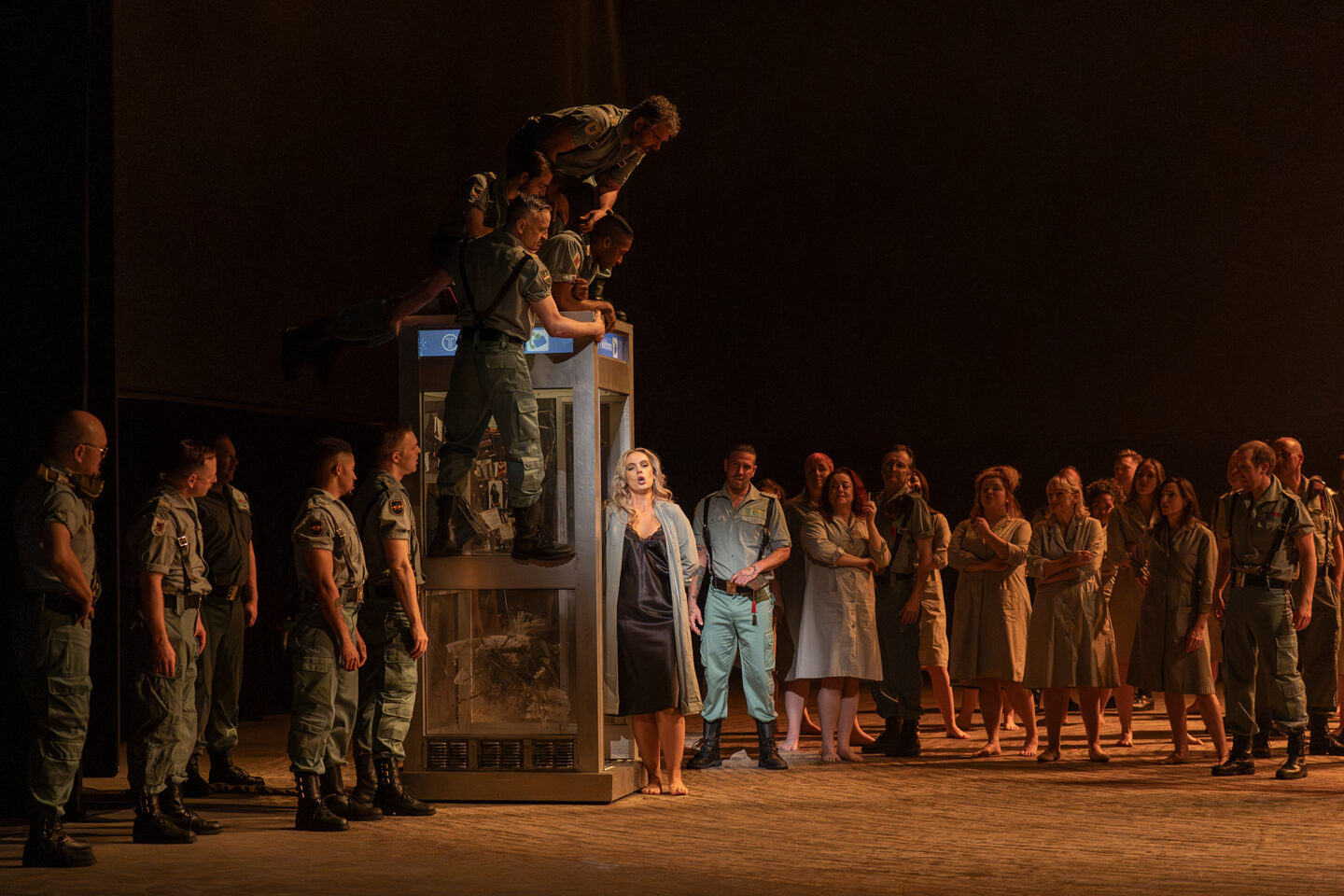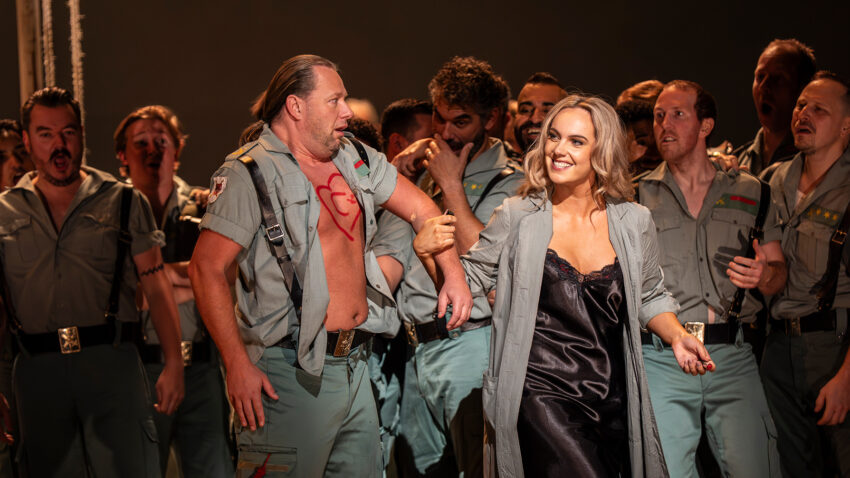Carmen Opera: Galleries & Videos




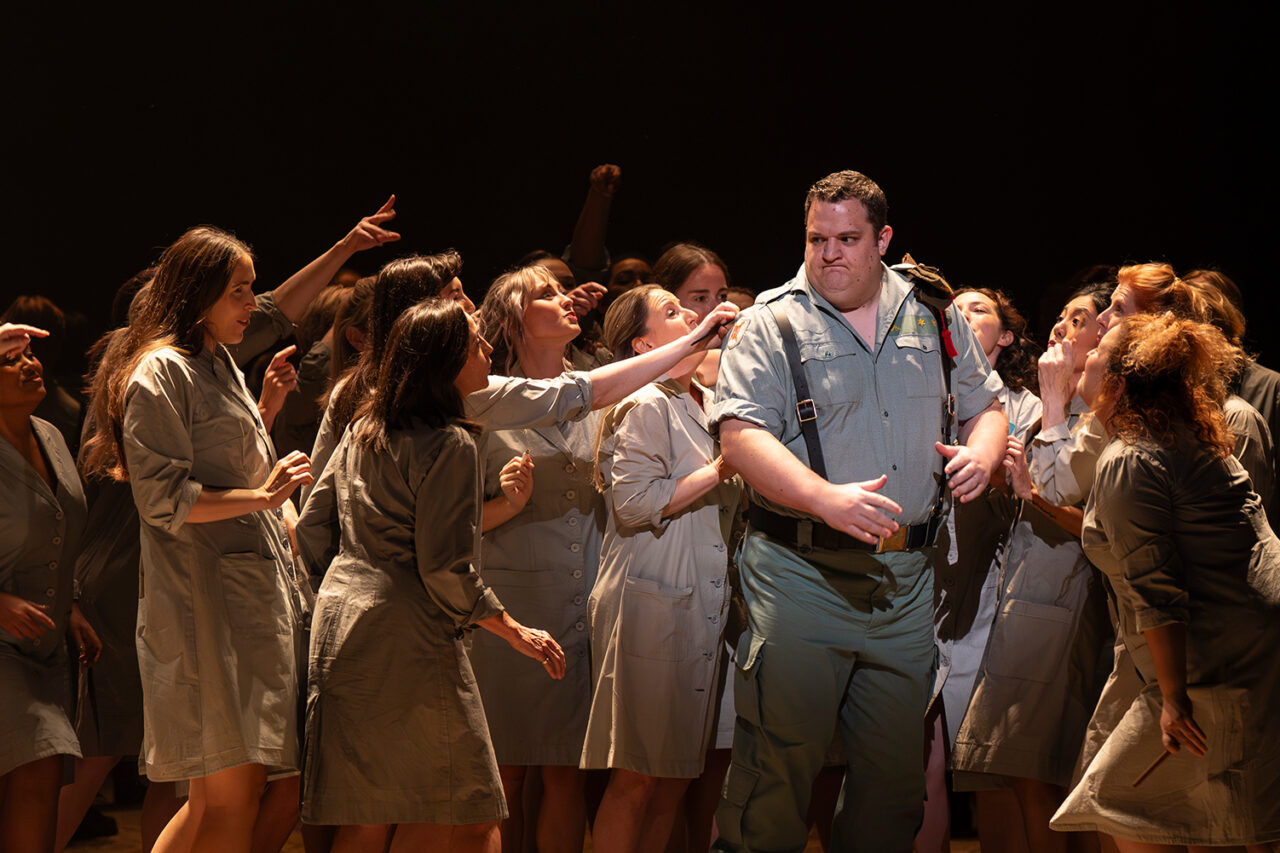
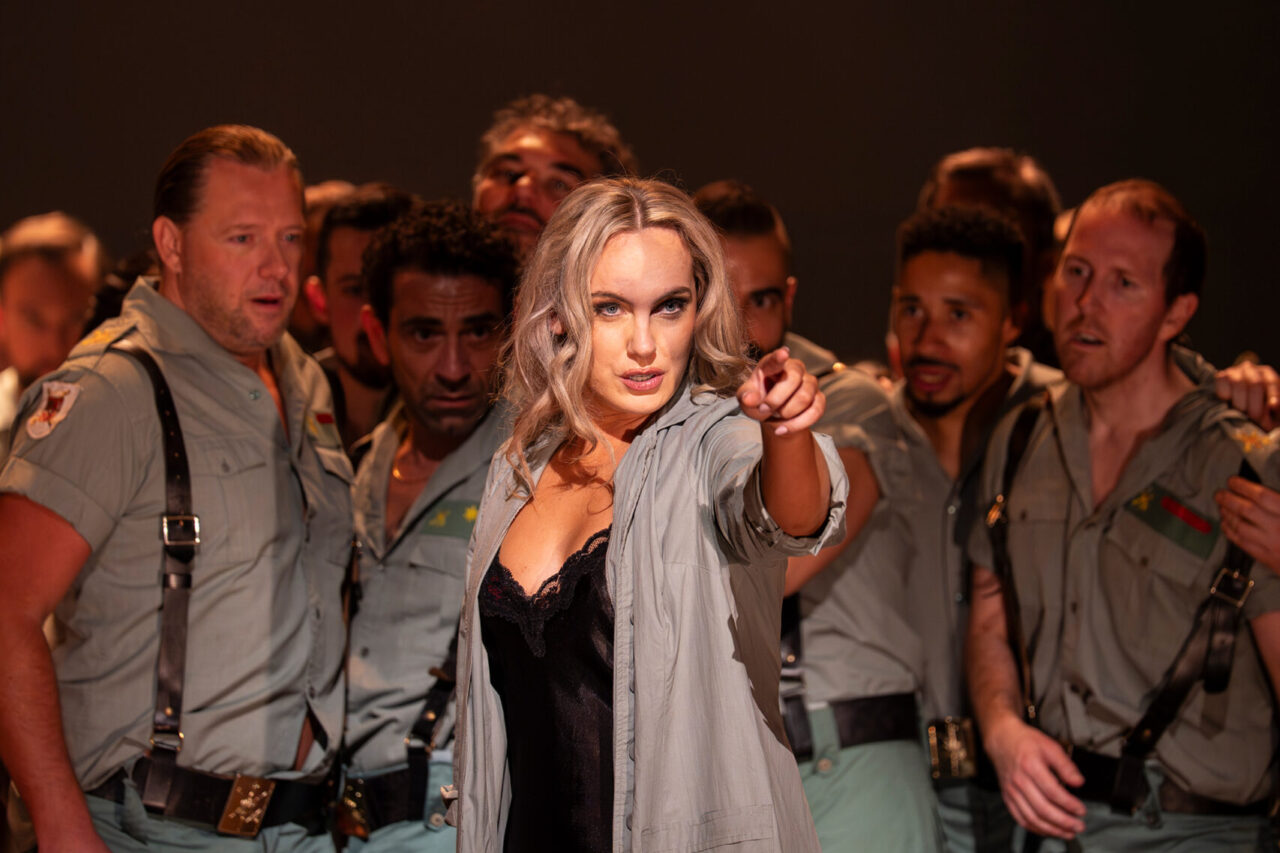


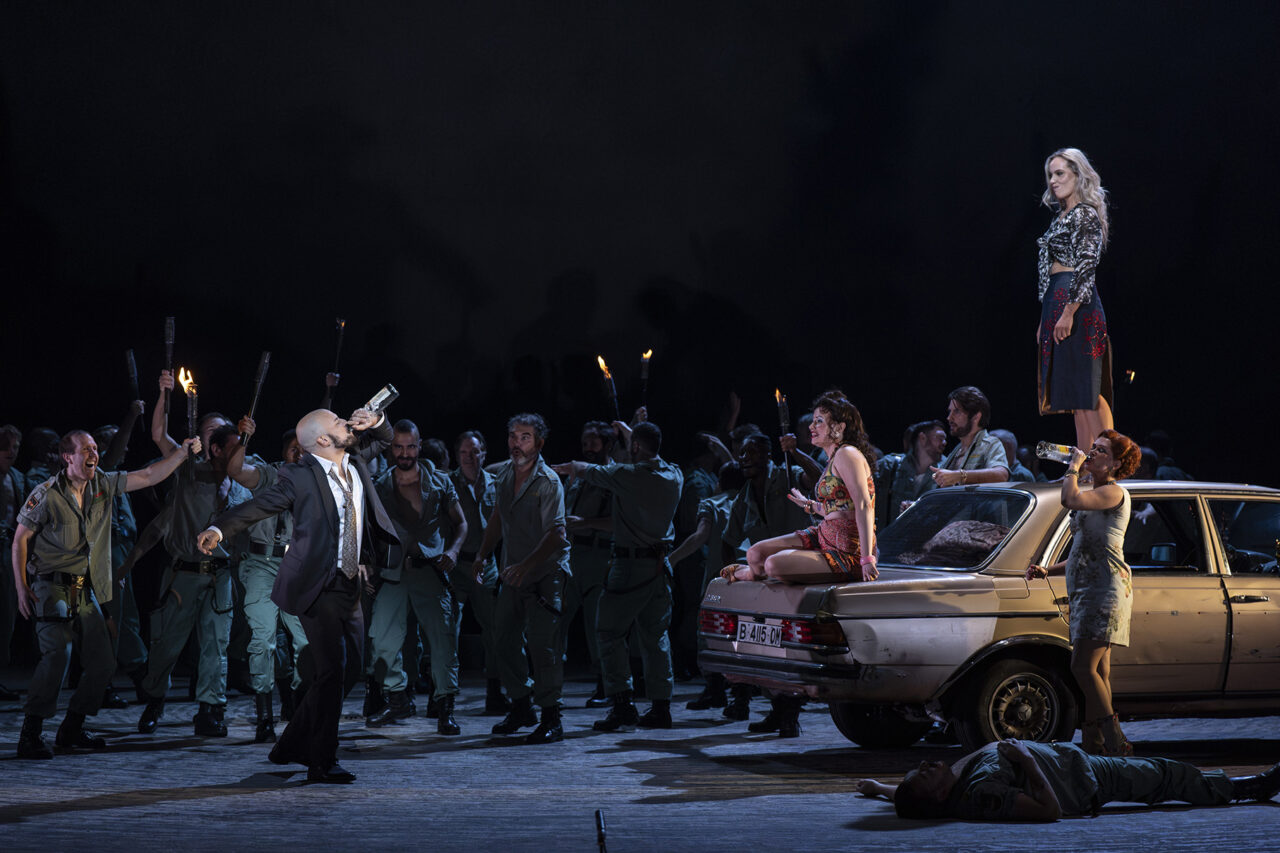
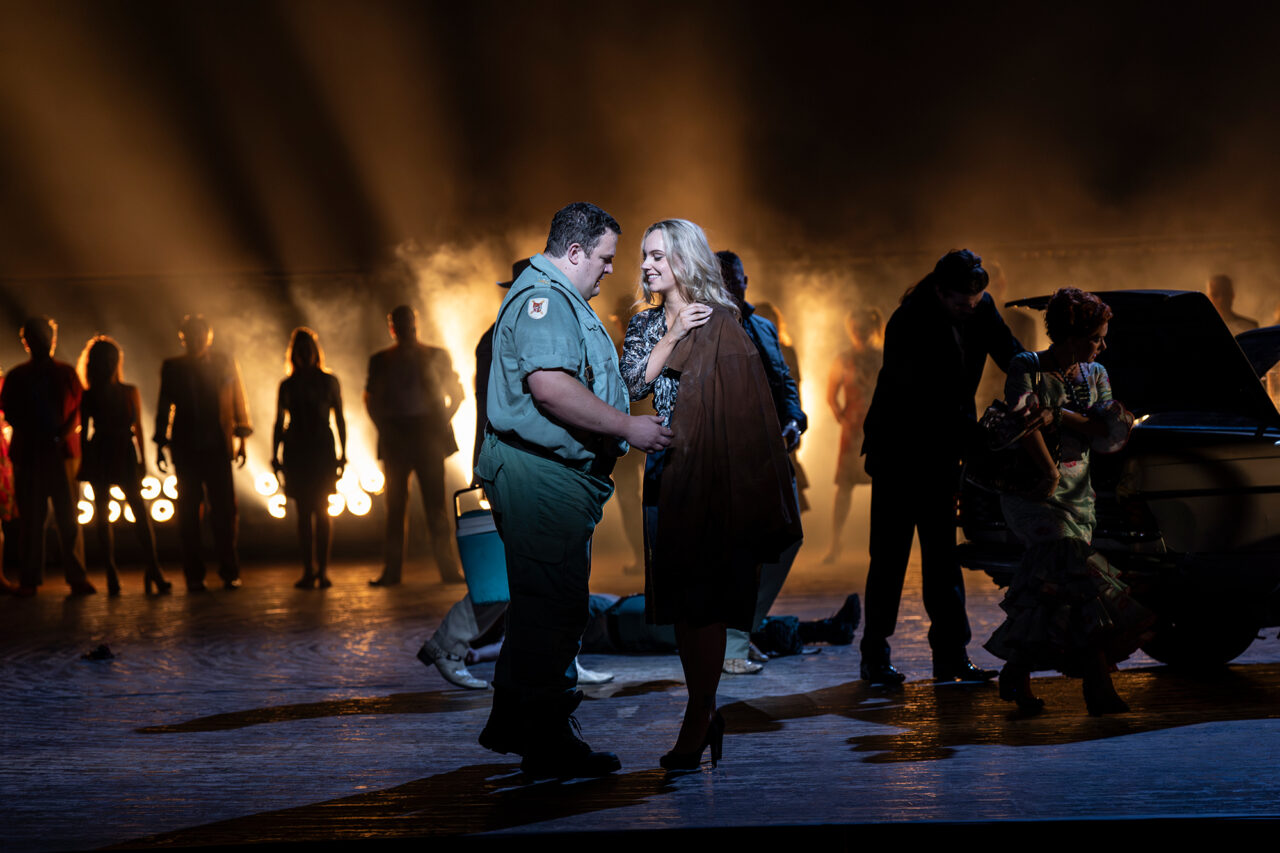

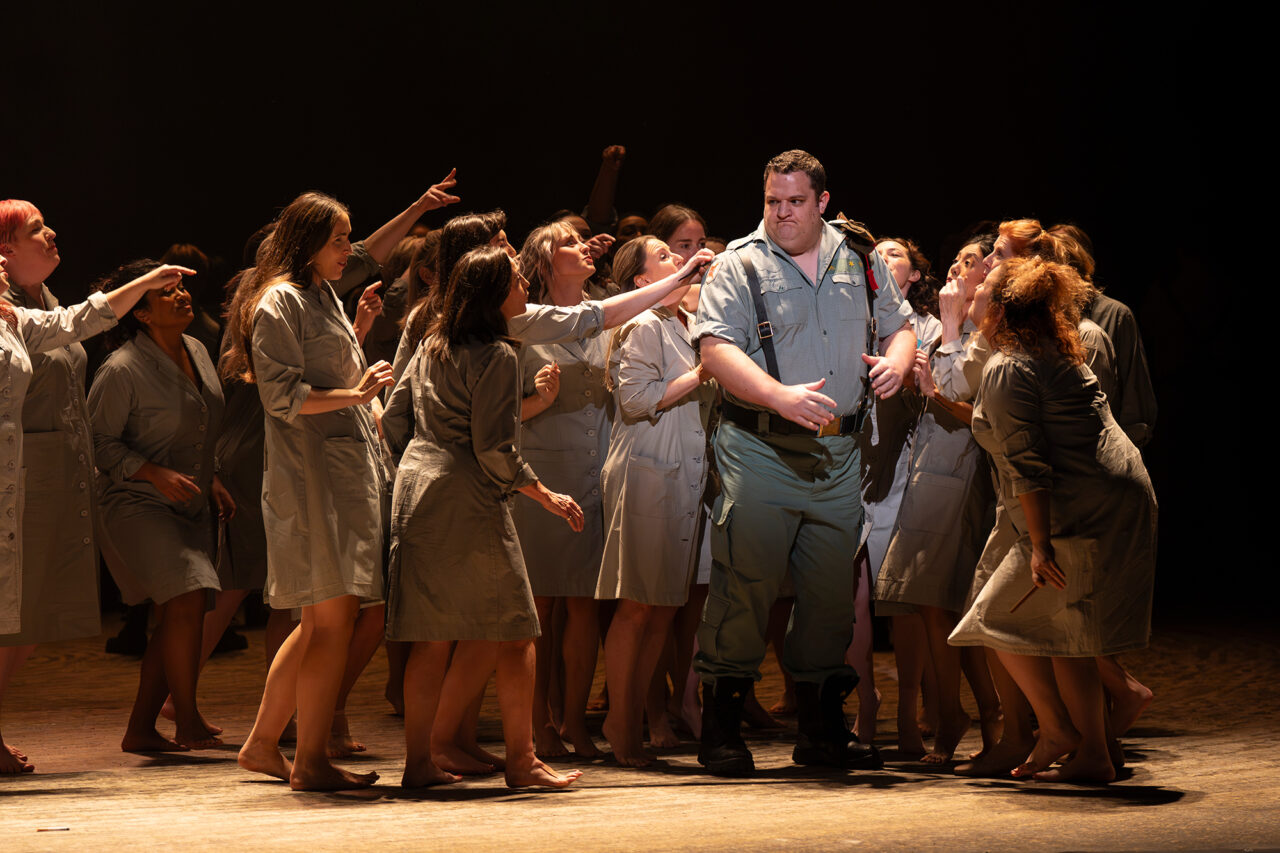
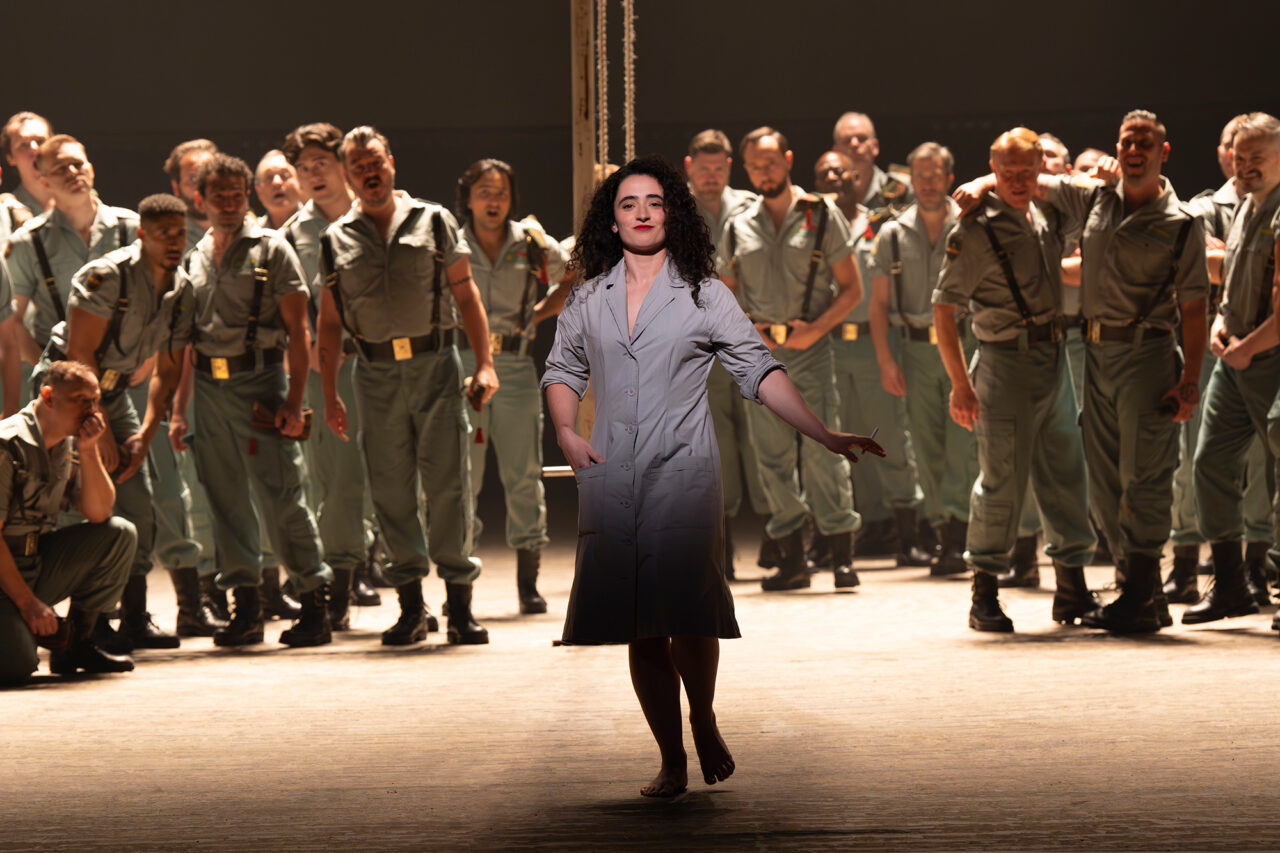
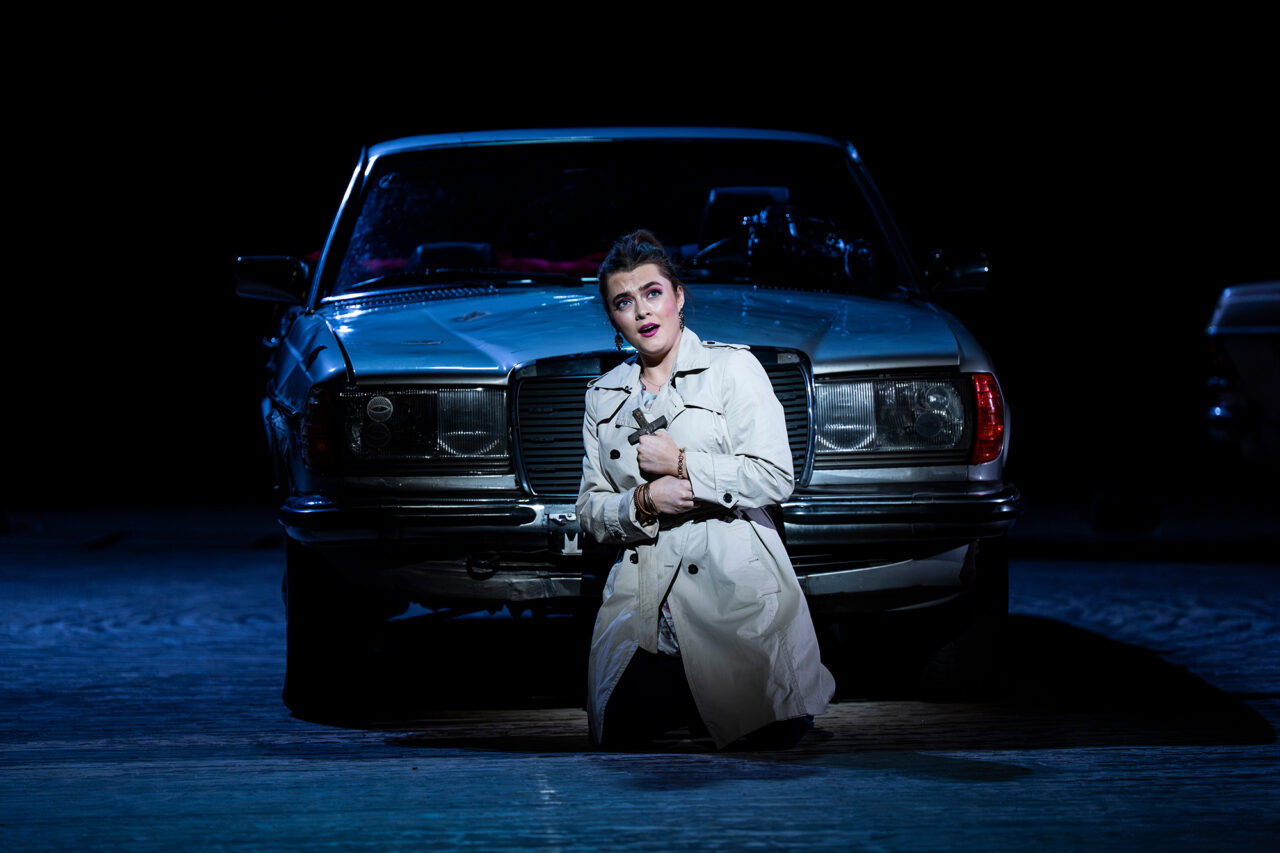
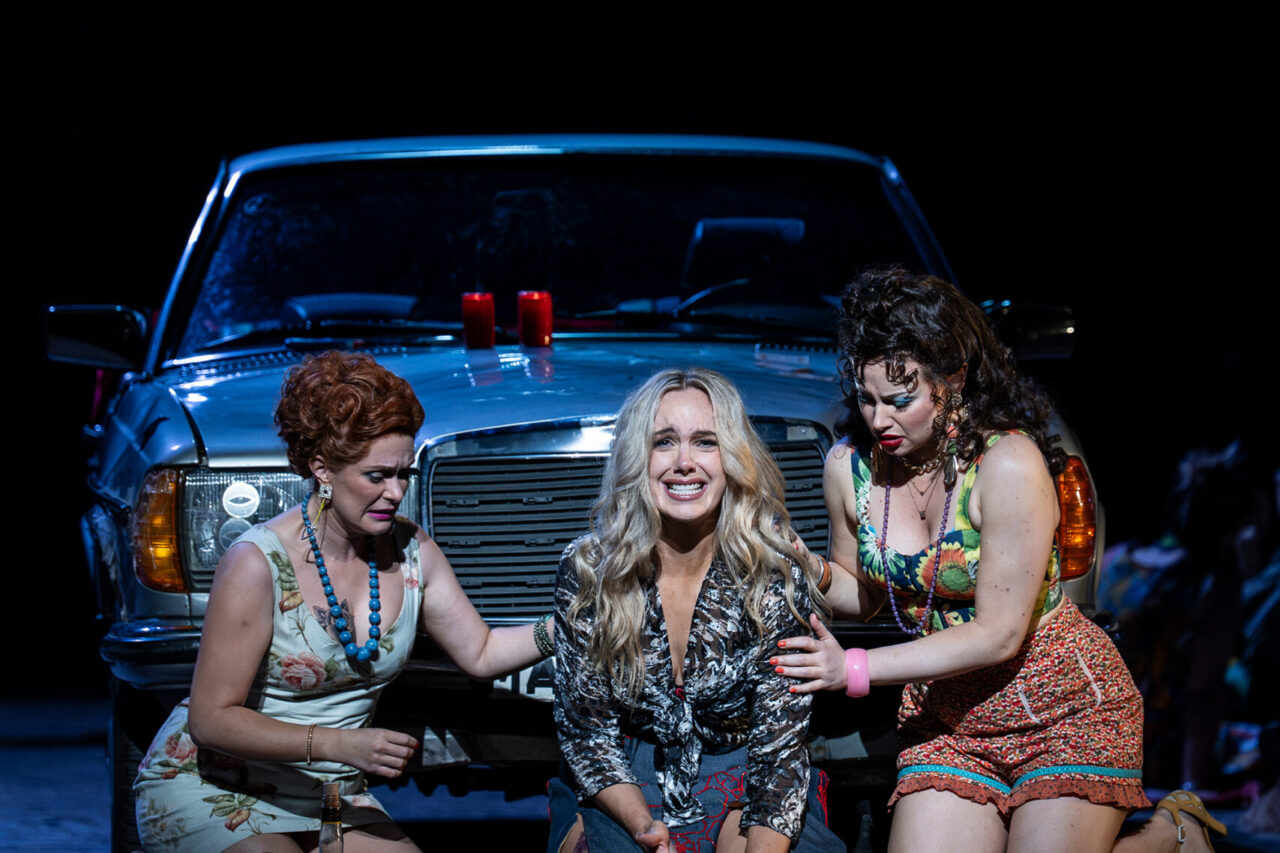
Carmen Opera Synopsis
Act I
Soldiers parade in the square. Micaëla arrives, looking for José. Moralès tells her that José is on the next watch. He tries to persuade her to wait with them, but Micaëla decides to return later. A crowd of street children appears, followed by the relief guard headed by Zuniga.
The square fills up with soldiers and women from the factory. Carmen attracts the most attention. Before returning to the factory, she throws a flower to José, which he picks up when everyone else has dispersed.
Micaëla returns and gives José the letter from his mother. Suddenly, there is uproar in the factory, and a crowd of women rush out. They accuse Carmen of drawing a knife during a fight with another girl. Carmen refuses to answer Zuniga’s questions, and he decides to send her to prison. While Zuniga is writing out the warrant, Carmen seduces José, who lets her escape.
Act II: Two Months Later
Carmen and her friends, Frasquita and Mercédès, are entertaining Zuniga and Moralès. A crowd of soldiers arrives with the celebrated bullfighter Escamillo. He is instantly attracted to Carmen.
Carmen, Frasquita and Mercédès are left alone with Dancairo and Remendado, who have a plan for which they need the girls’ help. Frasquita and Mercédès are ready, but Carmen says she cannot join them because she has fallen in love with José and is expecting him.
José’s voice is heard in the distance. He declares his love for Carmen, who dances for him. When the roll call sounds from the barracks, José is torn between his military duty and his feelings for Carmen. The moment José decides to leave, Zuniga returns. José is fiercely jealous and starts a fight with his superior officer. Carmen’s associates return and deal with Zuniga. José realises that his army career is over, and he now has no choice but to join them.
Act III: Several Months Later
Black-market smugglers come by night to the border. Carmen and José’s love affair has run its course: she has grown tired of him, and he, though still obsessed with her, is tense and unpredictable. Frasquita and Mercédès hope to read their fortunes in a pack of cards; when Carmen cuts the cards, they foretell only her death. The women leave to decoy some customs guards, and José remains behind in the camp.
Micaëla and Escamillo converge on the deserted encampment, seeking José and Carmen respectively. Micaëla hides as José confronts and fights Escamillo. Carmen and the smugglers return and stop them, and Escamillo invites the whole party to his next bullfight.
Micaëla is discovered. She begs José to return to his dying mother.
Act IV: Outside the Bullring
A crowd has gathered for Escamillo’s bullfight. The toreros enter to enthusiastic acclaim; Carmen is with Escamillo. After Escamillo has entered the arena, Carmen meets José. She taunts him and he kills her.
Carmen Opera FAQs
Inspired by real, scandalous tales collected by the author of the original 1845 novella while travelling in Spain, Carmen is a dramatic tale of love, jealousy and tragedy. It tells the story of a hopeless soldier, Don José, who is seduced by Carmen, a fiery gypsy woman with an appetite for smuggling. Abandoning his childhood sweetheart and turning his back on his military career, the opera follows José in his pursuit of Carmen’s attention. Though despite his efforts and desperation, Don José’s quest for love doesn’t end quite how he’d hoped…
Carmen was written by French composer, Georges Bizet (1838–1875). Bizet composed the opera in collaboration with top librettists of the time, Henri Meilhac and Ludovic Halévy, who adapted the story based on Prosper Mérimée’s novella of the same title.
Carmen was written in 1875. Unfortunately, the opera was Georges Bizet’s final composition before he died tragically of a heart attack mid-way through one of Carmen’s opening performances – exactly three months after it premiered.
Carmen is set in a remote frontier town in Seville, Spain during the 1820s. However, the ENO’s production originally directed by Calixto Bieito relocates the scene of this passionate love story to an early 1970s Spanish colony – a time towards the end of Francisco Franco’s dictatorship.
Carmen was controversial when it premiered in 1875 due to its bold themes and unconventional heroine. The opera centred on Carmen, a fiercely independent woman who defied societal norms with her free spirit and sensuality. Its gritty focus on working-class life and themes of passion, jealousy and violence shocked audiences who were surrounded by romanticised tales. Many found it provocative and immoral, but these groundbreaking elements eventually secured Carmen‘s place as a revolutionary masterpiece in opera history.
One of the most famous pieces from Bizet’s opera Carmen is the ‘Habanera’, officially titled ‘L’amour est un oiseau rebelle’ (‘Love is a rebellious bird’). Sung by the character Carmen in Act I, this seductive aria captures her free-spirited nature and views on love. Its captivating melody and rhythmic allure make it instantly recognisable and a favourite in the world of classical music.
Carmen is famous for its groundbreaking themes, unforgettable music and cultural impact. Bizet’s opera broke conventions by featuring a bold, independent heroine who defied societal norms, a portrayal that shocked 19th-century audiences. Its iconic music, including the ‘Habanera’ and ‘Toreador Song’, remains instantly recognisable and widely celebrated. Carmen’s exploration of passion, jealousy and human emotion, combined with its gripping story and vibrant characters, has made it one of the most performed and beloved operas in history.
No, Carmen is not based on a true story. The opera is adapted from Prosper Mérimée’s novella, published in 1845, which is a work of fiction. Mérimée’s story drew inspiration from his travels in Spain and his fascination with its culture, but the characters and events are products of his imagination.
The opera Carmen offers profound moral lessons, including the consequences of unchecked passion, jealousy and obsession. It highlights the dangers of allowing emotions to overpower reason, as seen in Don José’s downfall due to his obsessive love for Carmen. The story also explores the value of freedom, as Carmen lives and dies on her own terms, refusing to be controlled. Ultimately, Carmen invites reflection on how personal choices and emotional extremes can shape one’s destiny, leaving its lessons open to interpretation.
Carmen can be seen as a feminist opera in some ways, as its heroine embodies independence, strength and defiance of societal norms. However, the portrayal of her tragic end, driven by male jealousy and violence, complicates this interpretation. While Carmen herself is a bold and empowering figure, the opera’s ultimate message is open to debate, reflecting both feminist and broader human themes of freedom and choice.
